– Hubbardston, Massachusetts
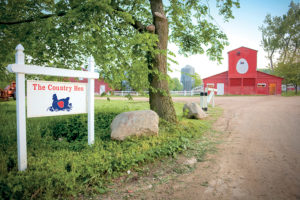 Established in 1987, The Country Hen® farm is located on 35-acres in the small town of Hubbardston, Massachusetts, population 4,500. The farm, which features 105,000 laying hens, is idyllically located between the largest reservoir (Quabbin) in the state and two tracts of forest land managed by the Massachusetts Department of Fish and Game and Wildlife Preservation agencies.
Established in 1987, The Country Hen® farm is located on 35-acres in the small town of Hubbardston, Massachusetts, population 4,500. The farm, which features 105,000 laying hens, is idyllically located between the largest reservoir (Quabbin) in the state and two tracts of forest land managed by the Massachusetts Department of Fish and Game and Wildlife Preservation agencies.
“Our location in this temperate climate zone was most responsible for the breeds of hens we care for – Hyline Brown, Isa Brown, and Bovan Brown hens – who have hardier constitutions that make them better suited to seasonal weather changes,” says Bob Beauregard, General Manager for The Country Hen farm. “Regardless, we still need to provide our hens with heated homes when winter settles in.
Beginning a career in farming
Bob served in the U.S. Navy and worked at a steel plant and a pallet manufacturing plant before landing a job at The Country Hen farm in 1995 as the feed and operations manager. “It was a great fit that allowed me to put my experience with mechanical equipment to rewarding and spiritually fulfilling practical use,” says Bob.
Bob says he learned everything there is to know about caring for laying hens from the farm’s founder, George Bass, who spent a lifetime caring for farm animals. By age nine, George was raising a pig, some piglets, a steer, some turkeys, and laying hens on his family’s property in Bridgeton New Jersey. As an adult, George founded and ran a conventional egg production business called “The Golden Egg” for many years in Bogotá, Columbia. Looking forward to retirement, he sold that business and returned to the U.S.
“But George was never one to sit idle, and before long he decided he missed caring for animals and the farming lifestyle,” says Bob. “He started looking for a small farm to raise hens, and settled on Hubbardston, Massachusetts.”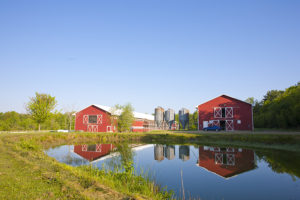
Before the advent of the internet or social media, George included little notes, now called Farm News inserts, in each carton of eggs. Since 1989, these inserts have educated consumers on what makes The Country Hen farm’s eggs so special and what’s happening on the farm. “These inserts have been so successful, other producers have copied the practice,” says Bob. “That is the highest form of flattery.”
Ensuring the welfare of laying hen
George turned the farm over to Bob in 2003. Bob admits there have been a lot of changes in public perception, certification standards and egg safety regulations since then “that keeps us on our toes,” says Bob. “Cage-Free and Certified Organic egg production is very different and offers many more challenges than conventional production. We strive to meet or exceed the exacting standards for egg safety set down by the FDA, and the standards required to be certified organic through the USDA, and to meet or exceed all rules, regulations and civic responsibilities that are unique to our location.”
For example, Bob says the farm is extra vigilant in preventing contamination of the soil and groundwater from things like nitrogen, phosphorus, Salmonella Enteriditis and other biological contaminants that can be very harmful to human health and the environment. So, they created a manure management program to prevent contamination of the groundwater.
The need to prevent contamination of the water inspired the development of their “porch system,” which provides safe outdoor access for the hens on specially-designed raised, wooden porches. These porches manage the manure safely by virtually eliminating all risk of run-off carrying any contaminants into the public drinking water supply. “The most fundamental basic purpose behind organic farming is and has always been a crusade to preserve natural resources of soil, water and air,” says Bob.
The farm also implements stringent biosecurity measures to preserve the health and well-being of their laying hens. They developed a tiered biosecurity system that not only shelters their hens from exposure to disease but responds to changes in the threat levels that come twice a year with the annual migration of wild waterfowl that are known carriers of Avian Influenza and other devastating diseases.
“In our efforts to ramp up our biosecurity during the Avian Influenza endemic of 2015, we left no stone unturned when exploring ways to keep our ladies safe from their wild waterfowl cousins migrating overhead,” says Bob. “We purchased some coyote decoy manikins to deter waterfowl from coming too close to the man-made pond that serves as a source of water for firefighters to use in the event of a fire. It seemed to be working well enough as we saw no geese or ducks landing near the water after we positioned our artificial “guard dogs.” It turns out that turkeys are a bit more difficult to fool. They decided the decoy coyote manikins were very comfortable places to perch and they sat right on top of them. We had to add a few fake owls, and some Mylar balloons that look like giant eyes to encourage the turkeys to move along elsewhere.”
Meeting Certified Humane Animal Care Standards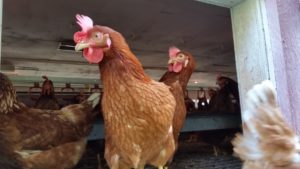
The staff inspect the hen’s living environment multiple times each day, monitoring and recording ambient temperature, air quality, feed levels, and water quality. Blood tests are conducted at intervals during the hen’s development, and all of this is reviewed and checked regularly by a veterinarian.
When The Country Hen farm joined the Certified Humane program in 2017, Bob said “the standards and mission of Humane Farm Animal Care (HFAC) might well have been modeled after the practices and procedures we have had in place all along. It certainly is not difficult to comply with HFAC’s Animal Care Standards that were already and had always been standard operating procedures here. The hens are our operation. We rely on them for our livelihood, and without them we’re nothing. Keeping them safe, happy, and healthy is our top priority.”
Another way The Country Hen farm keeps hens healthy and happy is by operating an on-site mill, which combines locally-sourced certified organic ingredients to create a proprietary blend of certified organic feed. The feed formulas designed by George Bass, with the help of specialists in human and animal nutrition working and testing tirelessly for countless hours, are all designed to provide optimum nutrition for their hens at every stage of their development and growth.
“We do not wonder what our girls are eating or drinking, or if they are getting appropriate nutrition,” says Bob.” “We know what they are eating, how old or fresh the feed might be and from whence each ingredient came. We inspect each ingredient and samples are tested at the time of delivery to be sure it is top quality.”
As a result, Bob says their eggs provide all three Omega-3s (DHA, EPA, ALA) and impressive amounts of Vitamin D, Choline, Lutein and Zeaxanthin.
Employing family and local residents to work on the farm
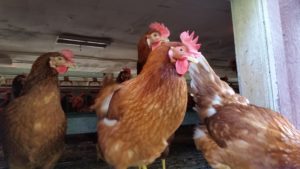 Because animal husbandry is a top priority for the farm, The Country Hen farm has an intensive hiring process, which involves an extensive background check, drug and alcohol screenings, supervised orientation, hands-on training, regular safety in-services and one-to-one instruction on every aspect of humane hen care.
Because animal husbandry is a top priority for the farm, The Country Hen farm has an intensive hiring process, which involves an extensive background check, drug and alcohol screenings, supervised orientation, hands-on training, regular safety in-services and one-to-one instruction on every aspect of humane hen care.
Some of the farm’s 35 employees are residents, some are family members who work in any capacity as needed. “Nepotism may not be ideal in other types of industry, but it works splendidly on a farm,” says Bob. “Not only do siblings, children, grandchildren and other extended family members tend to jump right in to help each other out when needed, there is also the added benefit or coincidence that all seem to share the same understanding and love of the farming lifestyle and the same compassion for animals.”
As a major employer in Hubbardston, The Country Hen farm has been recognized by the community for numerous contributions and volunteer work. In 2017, Bob himself was the recipient of the town’s prestigious Citizen of the Year award on behalf of the farm’s community service in Hubbardston.
The Country Hen farm eggs are sold in more than 20 states up and down the East Coast and as far west as California. They are sold in cartons of six rather than by the dozen.
Visit Certified Humane’s “Where to Buy” page or download the free Certified Humane app to find stores near you where you can purchase Country Hen Farm eggs and support a Certified Humane farm.
For more information, visit The Country Hen farm.
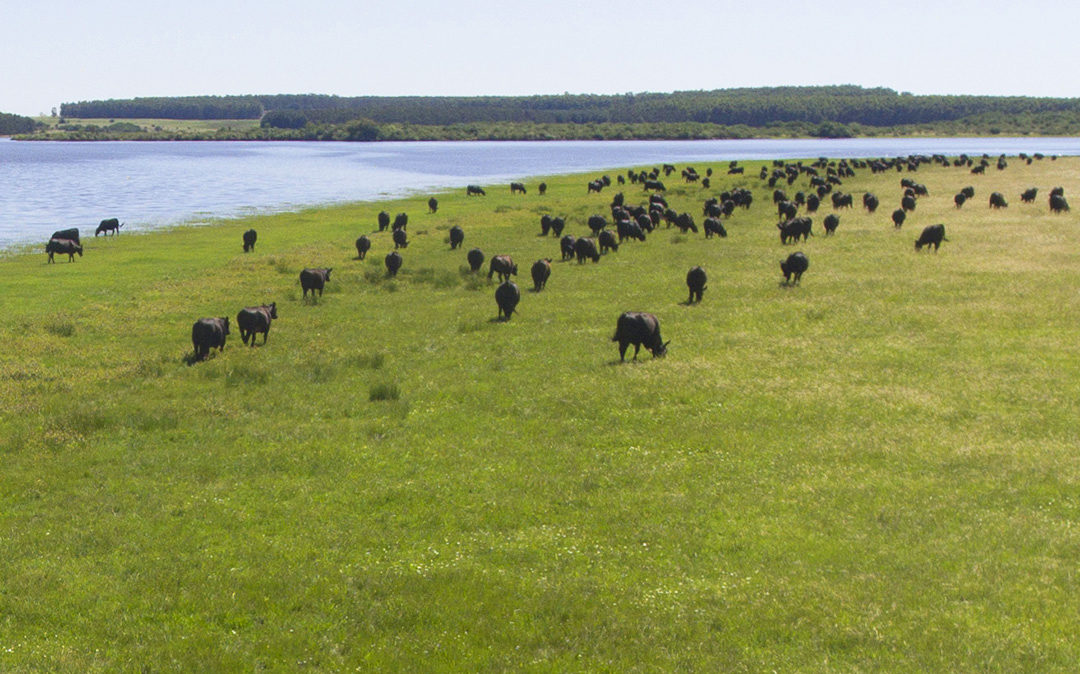


Posted: June 20, 2018 by Certified Humane®
Avícola Coliumo
Avícola Coliumo, San Carlos, Chillán, Chile
Avícola Coliumo raises 30,000 Certified Humane® hens on a 1,300 hectare egg farm in San Carlos, Chillán, Chile. The farm got its start in 1962 by Don Patrico Reyes, the father of the current owner, Felipe Reyes. Reyes remembers the early days, working alongside his dad and taking care of their 100-bird flock.
At 24, Reyes took over some of the farm’s management, which had grown from 100 to 15,000 hens. “In the beginning, we had the help of local workers, many of whom still work with us today,” says Reyes. “Little by little, we automated our system to improve the quality of care for the hens.”
Over the years, Avícola Coliumo has set the standard in Chile for implementing state-of-the-art technology in all stages of the egg-laying process, from sowing grains and feeding the hens to selecting and packaging eggs that are distributed from the Santiago Metropolitan area to the Lakes region.
Today, Reyes and his two daughters, Javiera and Antonia Reyes, are the third generation to operate the farm, along with 130 employees, many of who have been working on the farm since it was formed. Antonia, a veterinarian, wanted to see the hens free of their cages, so traveled to the U.S. and Europe to learn about the various multi-level cage-free aviary systems.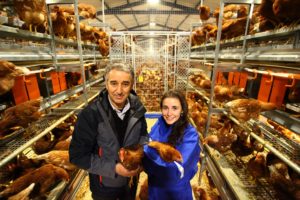
In 2018, she brought the new cage-free multi-level aviary system to Avícola Coliumo – the first such system in South America – to better provide for the hens’ natural behaviors. Some of the new additions included perches so the hens can roost, wood chip beds that allow the hens to dust bathe and scratch, and nests, which stimulate pre-laying and egg laying behaviors, Reyes says. The new line of cage-free eggs, called “La Castellana,” fits with the farm’s goal of providing a better quality of life for their hens.
“We believe that our birds deserve respectful treatment, since they are sentient beings just like us,” says Reyes. “When they cannot perform certain natural behaviors, they feel frustrated, which is detrimental to their welfare. By providing them with a cage-free aviary, we can support their natural behaviors.”
Once the cage-free aviary was in place, Reyes applied to Certified Humane® for certification. “I learned about Certified Humane® during a trip to the USA to learn about aviary systems,” says Reyes. “This organization has such great reach and relevance in the aviary industry in terms of animal welfare. When I read their Animal Care Standards, I realized they promoted animal welfare in an excellent way and gave us benchmarks, so we could properly manage our hens in a more humane way.”
Avícola Coliumo doesn’t just have the first multi-level aviary system in South America, but it also has solar panels, which supply 100% of the energy for the cage-free production. “We are measuring our carbon footprint and are the first laying hens farm in Chile to do so,” says Reyes.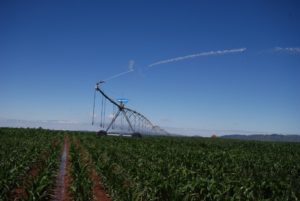
The cage-free eggs will be sold in the HORECA channel: Hotels, Restaurants and Casinos, as well as at Walmart and other supermarket chains. For more information, visit www.huevoslacastellana.com.
To learn more, visit their website at: http://huevoscoliumo.cl/
Posted: May 10, 2018 by Certified Humane®
Teton Waters Ranch
Teton Waters Ranch produces 100% grass-fed and grass-finished, fully cooked beef products, including sausages, meatballs and frankfurters. Originally founded on a ranch in the Teton Valley of Idaho, Teton Waters Ranch has grown to become a leading brand of 100% grass-fed beef in the U.S.
Teton Waters Ranch is working to increase availability of and consumer demand for grass-fed beef. Retail sales of grass-fed beef in the U.S. has doubled each year since 2013, growing at 101 percent per year, with Teton Waters Ranch leading growth in their product categories.
For more information, please visit Teton Waters Ranch
Find Teton Waters Ranch products in grocery stores across the US by visiting the brand locator at certifiedhumane.org/ shop/ or by downloading the free mobile app certifiedhumane.org/download-our-mobile-app/.
Posted: May 4, 2018 by Certified Humane®
The Country Hen
– Hubbardston, Massachusetts
“Our location in this temperate climate zone was most responsible for the breeds of hens we care for – Hyline Brown, Isa Brown, and Bovan Brown hens – who have hardier constitutions that make them better suited to seasonal weather changes,” says Bob Beauregard, General Manager for The Country Hen farm. “Regardless, we still need to provide our hens with heated homes when winter settles in.
Beginning a career in farming
Bob served in the U.S. Navy and worked at a steel plant and a pallet manufacturing plant before landing a job at The Country Hen farm in 1995 as the feed and operations manager. “It was a great fit that allowed me to put my experience with mechanical equipment to rewarding and spiritually fulfilling practical use,” says Bob.
Bob says he learned everything there is to know about caring for laying hens from the farm’s founder, George Bass, who spent a lifetime caring for farm animals. By age nine, George was raising a pig, some piglets, a steer, some turkeys, and laying hens on his family’s property in Bridgeton New Jersey. As an adult, George founded and ran a conventional egg production business called “The Golden Egg” for many years in Bogotá, Columbia. Looking forward to retirement, he sold that business and returned to the U.S.
“But George was never one to sit idle, and before long he decided he missed caring for animals and the farming lifestyle,” says Bob. “He started looking for a small farm to raise hens, and settled on Hubbardston, Massachusetts.”
Before the advent of the internet or social media, George included little notes, now called Farm News inserts, in each carton of eggs. Since 1989, these inserts have educated consumers on what makes The Country Hen farm’s eggs so special and what’s happening on the farm. “These inserts have been so successful, other producers have copied the practice,” says Bob. “That is the highest form of flattery.”
Ensuring the welfare of laying hen
George turned the farm over to Bob in 2003. Bob admits there have been a lot of changes in public perception, certification standards and egg safety regulations since then “that keeps us on our toes,” says Bob. “Cage-Free and Certified Organic egg production is very different and offers many more challenges than conventional production. We strive to meet or exceed the exacting standards for egg safety set down by the FDA, and the standards required to be certified organic through the USDA, and to meet or exceed all rules, regulations and civic responsibilities that are unique to our location.”
For example, Bob says the farm is extra vigilant in preventing contamination of the soil and groundwater from things like nitrogen, phosphorus, Salmonella Enteriditis and other biological contaminants that can be very harmful to human health and the environment. So, they created a manure management program to prevent contamination of the groundwater.
The need to prevent contamination of the water inspired the development of their “porch system,” which provides safe outdoor access for the hens on specially-designed raised, wooden porches. These porches manage the manure safely by virtually eliminating all risk of run-off carrying any contaminants into the public drinking water supply. “The most fundamental basic purpose behind organic farming is and has always been a crusade to preserve natural resources of soil, water and air,” says Bob.
The farm also implements stringent biosecurity measures to preserve the health and well-being of their laying hens. They developed a tiered biosecurity system that not only shelters their hens from exposure to disease but responds to changes in the threat levels that come twice a year with the annual migration of wild waterfowl that are known carriers of Avian Influenza and other devastating diseases.
“In our efforts to ramp up our biosecurity during the Avian Influenza endemic of 2015, we left no stone unturned when exploring ways to keep our ladies safe from their wild waterfowl cousins migrating overhead,” says Bob. “We purchased some coyote decoy manikins to deter waterfowl from coming too close to the man-made pond that serves as a source of water for firefighters to use in the event of a fire. It seemed to be working well enough as we saw no geese or ducks landing near the water after we positioned our artificial “guard dogs.” It turns out that turkeys are a bit more difficult to fool. They decided the decoy coyote manikins were very comfortable places to perch and they sat right on top of them. We had to add a few fake owls, and some Mylar balloons that look like giant eyes to encourage the turkeys to move along elsewhere.”
Meeting Certified Humane Animal Care Standards
The staff inspect the hen’s living environment multiple times each day, monitoring and recording ambient temperature, air quality, feed levels, and water quality. Blood tests are conducted at intervals during the hen’s development, and all of this is reviewed and checked regularly by a veterinarian.
When The Country Hen farm joined the Certified Humane program in 2017, Bob said “the standards and mission of Humane Farm Animal Care (HFAC) might well have been modeled after the practices and procedures we have had in place all along. It certainly is not difficult to comply with HFAC’s Animal Care Standards that were already and had always been standard operating procedures here. The hens are our operation. We rely on them for our livelihood, and without them we’re nothing. Keeping them safe, happy, and healthy is our top priority.”
Another way The Country Hen farm keeps hens healthy and happy is by operating an on-site mill, which combines locally-sourced certified organic ingredients to create a proprietary blend of certified organic feed. The feed formulas designed by George Bass, with the help of specialists in human and animal nutrition working and testing tirelessly for countless hours, are all designed to provide optimum nutrition for their hens at every stage of their development and growth.
“We do not wonder what our girls are eating or drinking, or if they are getting appropriate nutrition,” says Bob.” “We know what they are eating, how old or fresh the feed might be and from whence each ingredient came. We inspect each ingredient and samples are tested at the time of delivery to be sure it is top quality.”
As a result, Bob says their eggs provide all three Omega-3s (DHA, EPA, ALA) and impressive amounts of Vitamin D, Choline, Lutein and Zeaxanthin.
Employing family and local residents to work on the farm
Some of the farm’s 35 employees are residents, some are family members who work in any capacity as needed. “Nepotism may not be ideal in other types of industry, but it works splendidly on a farm,” says Bob. “Not only do siblings, children, grandchildren and other extended family members tend to jump right in to help each other out when needed, there is also the added benefit or coincidence that all seem to share the same understanding and love of the farming lifestyle and the same compassion for animals.”
As a major employer in Hubbardston, The Country Hen farm has been recognized by the community for numerous contributions and volunteer work. In 2017, Bob himself was the recipient of the town’s prestigious Citizen of the Year award on behalf of the farm’s community service in Hubbardston.
The Country Hen farm eggs are sold in more than 20 states up and down the East Coast and as far west as California. They are sold in cartons of six rather than by the dozen.
Visit Certified Humane’s “Where to Buy” page or download the free Certified Humane app to find stores near you where you can purchase Country Hen Farm eggs and support a Certified Humane farm.
For more information, visit The Country Hen farm.
Posted: May 4, 2018 by Certified Humane®
Born Free Eggs
Born Free eggs are produced by approved, licensed producers on farms located throughout the United States, and are distributed locally. “The farmers are highly-focused on the humane care of the hens,” says Dave Holdsworth, Vice President of Marketing. “Producers are selected for their ability to meet our quality standards.
Amy Barkley, Quality Assurance Manager, says, “I have visited these small farms and see how the farmers take care of their birds. They know their birds and are committed to providing the highest standard of care for every bird in their flock.”
Born Free Eggs gives every farm a proprietary manual of operations, which includes Humane Farm Animal Care’s standards, to ensure the uniform and humane care of the laying hens.
“As a company, it’s critically important for us to make sure everything for the birds is done humanely,” Barkley emphasized. “The welfare of the birds is our number one concern. Certified Humane has a long and established reputation and certification standards that are on target with our ethics. Their third-party verification assures consumers our birds are receiving proper care.”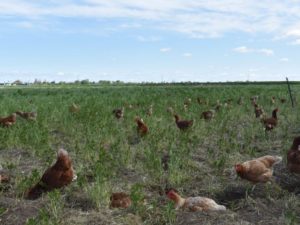
Born Free Eggs follow a dual audit process: Company veterinarians audit their farms, and HFAC’s third-party inspectors, all veterinarians and scientists with specialties in farm animal welfare, also audit farms to ensure humane standards are being met for the hens. “This is a great double check for us to pass onto the consumer,” says Barkley.
Reasons to become Certified Humane®
Born Free Eggs applied for the Certified Humane® program because they wanted a label backed by standards that were well-established and well-known in the U.S. “The free-range and pasture-range market is fragmented with so many different labels and standards, like “happy” and “natural,” that aren’t backed by standards,” says Holdsworth. “We felt it was important to bring Born Free Eggs to the rest of the U.S. with the guaranteed backing and standards of the Certified Humane label.”
“The Certified Humane market is the fastest growing market among consumers interested in free range and pastured range eggs, and retailers selling egg products,” says Holdsworth. “We recognize the power of the Certified Humane logo and the big boost the recognized credibility provides our consumers.”
Born Free Pasture-Raised hens have a housing system that provides a more expansive outdoor area that is at least equivalent in size to the indoor space, and often considerably larger. The hens can forage outside, as seasonally available. Born Free Free-Range hens are free to roam in spacious barns and have access to the outdoors. The outdoor access varies from farm to farm and can include outdoor runs that are covered with a roof to more extensive fenced pasture areas with no roof overhead.
“What aligns us with Humane Farm Animal Care is that their Animal Care Standards for the Certified Humane® program are scientifically-based,” says Barkley. “We are high on science at Born Free. We always look to science for the newest innovations, and we know Certified Humane stays up-to-date on those standards.”
Posted: April 27, 2018 by Certified Humane®
Ovobrand SA
Located in Buenos Aires, Argentina, Ovobrand is the largest egg farm in Argentina, operating on 320 hectares (791 acres). Its name, they say, was inspired by OVO, which means “egg,” and BRAND, for the city where it is located, Coronel Brandsen.
Their production and processing facilities are located together, which allows and facilitates the control and traceability of processes and products from the beginning to the end of the supply chain. (Traceability is a critical requirement of Humane Farm Animal Care’s Animal Care Standards.) Ovobrand receives one-day-old chicks and raises them for 18 weeks before moving them into one of their egg laying aviaries.
“We always watch over the welfare of our birds, and take great care of their health and well-being,” says Octavio Gaspar, Manager at Ovobrand. “We recognize that consumers are interested in knowing where their food comes from, choosing the most natural foods that are friendly with the environment and human health. In the case of egg production, consumers want to know that the laying hens are comfortable and allowed to express their natural behaviors.”
To meet consumer demand, Ovobrand was determined to better meet the social, mental and physical needs of their birds by beginning the conversion to a cage-free environment and “learning new production methods for raising and keeping hens cage-free,” Octavio says. “So, we started looking for a certification program with strong credentials and that was well-respected by animal organizations around the world. Several international animal welfare groups that we trusted suggested Humane Farm Animal Care’s program.”
Ovobrand agreed with HFAC’s philosophy and Animal Care Standards and requested, in 2017, to be a part of the Certified Humane Raised and Handling® program. It took a few months for Ovobrand to make the necessary changes to their barns to meet HFAC’s standards.
“We are very grateful to the Certified Humane team for helping us transition to cage-free production methods,” says Octavio. “We have already noticed that the birds are happier and that the staff working in the cage-free barn seem to have a different and more connected relationship with the hens. They interact more with each other and the hens seem more awake.”
Working under Humane Farm Animal Care’s strict protocols, Ovobrand becomes the first Argentine company to produce Certified Humane® eggs. About 150 staff work in their modern processing plant, where their wide-range of premium egg and egg products are produced, or in their barns overseeing the care and well-being of the laying hens.
“We’re not a family business, but after 10 years and with so many dedicated people, it feels like a family business,” says Octavio. “We are now glad to be a part of Humane Farm Animal Care’s family, and the Certified Humane certification program.”
To learn more, visit their website at: www.ovobrand.com.